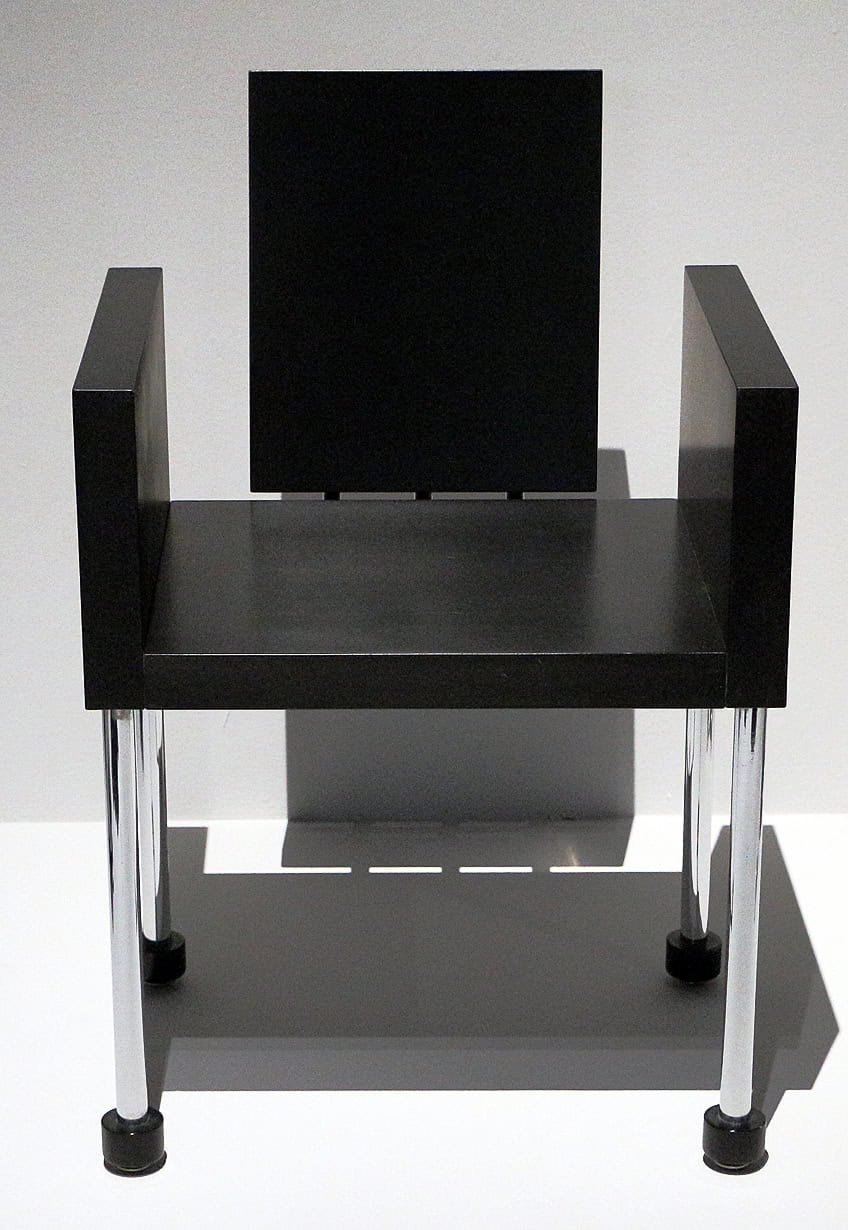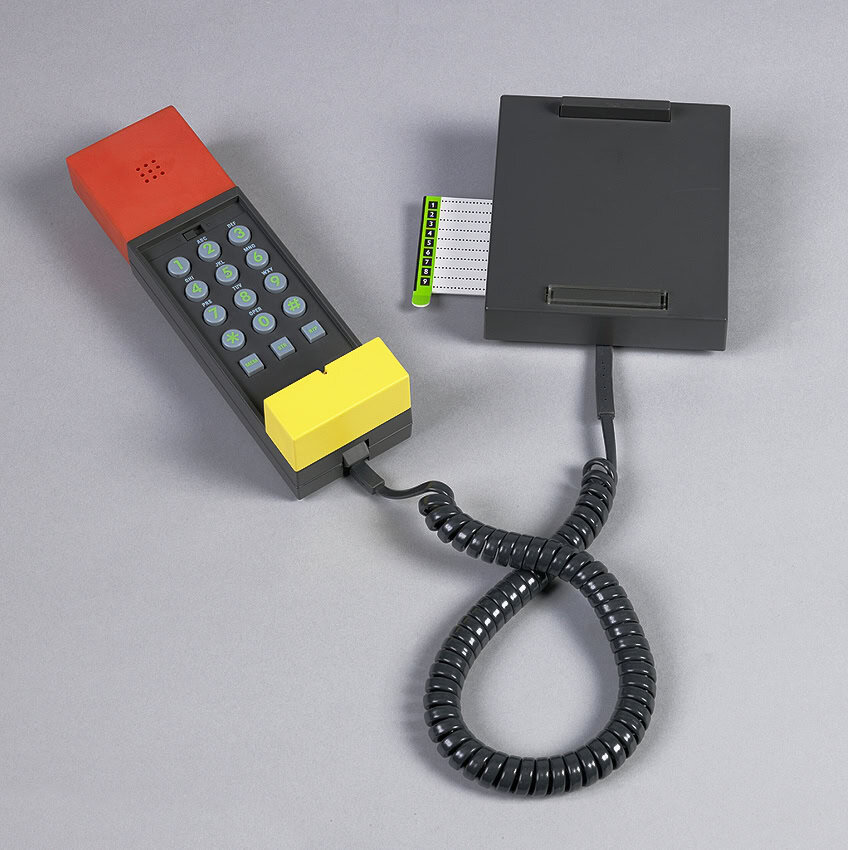Ettore Sottsass – Breaking Design Norms
Ettore Sottsass, an influential figure in 20th-century design and architecture, is best known for his groundbreaking work as the founder of the Memphis Group. Born in 1917, Sottsass’s career spanned decades and encompassed a wide range of disciplines, including architecture, industrial design, and ceramics. His innovative approach to design, characterized by bold colors, geometric patterns, and a playful aesthetic, challenged traditional notions of form and function. Through his iconic designs and visionary ideas, Sottsass left a lasting impact on the world of design and continues to inspire creatives globally.
Key Takeaways
- Ettore Sottsass was a paramount figure in the architecture and design spheres, known for his avant-garde and colorful creations.
- He founded the Memphis Group, pivotal in the postmodern design movement of the 1980s.
- Sottsass’s legacy is reflected in his broad influence across various art and design forms, and in his distinctive approach that reshaped 20th-century aesthetics.
Early Life and Education
| Birth | September 14, 1917 |
| Death | December 31, 2007 |
| Place of Birth | Innsbruck, Austria-Hungary (now Austria) |
| Genre of Work | Architecture, design, and industrial design |
Ettore Sottsass was an influential Italian architect and designer, whose work spanned several decades of the 20th century. Born in Austria and later based in Milan, Sottsass not only made significant contributions to the world of architecture but also left his mark on various domains of design, including furniture, lighting, and jewelry. His approach often featured bold colors and distinctive forms, breaking away from conventional design norms and embracing a more expressive, experimental style.

As a visionary in his field, Sottsass founded the Memphis Group, a collective that became synonymous with the 1980s postmodern design movement. The Memphis Group’s playful, unconventional pieces challenged the minimalist aesthetic of the time and continue to be celebrated for their contribution to the design world. Moreover, Sottsass’s designs for office equipment and electronics, particularly for the Italian manufacturer Olivetti, revolutionized the aesthetic of workplace technology and are considered design classics.
Birth and Family Background
Ettore Sottsass was born on September 14, 1917, in Innsbruck, Austria. His father, also named Ettore Sottsass, was an esteemed architect and a member of the modernist architecture group Movimento Italiano per l’Architettura Razionale (MIAR).
The culture of creativity and architectural discourse in his family influenced his future path.
Politecnico di Torino
Sottsass’s academic journey in design commenced when he enrolled at the Politecnico di Torino. He studied architecture, immersing himself in the rigors of academic and practical applications of design. He graduated in 1939, marking the culmination of his formal education and the onset of his professional career.

Professional Career
Ettore Sottsass, renowned for his diverse contributions to 20th-century architecture and design, transitioned from early architectural projects to industrial design and ultimately established his own consultancy and design collective.
His influential career spanned over six decades, during which he engaged with various disciplines, left a profound impact on postmodern design, and consistently challenged conventional aesthetics.
Development of Career
Sottsass, born in Austria, began his career in Milan, collaborating with his father, an architect too. After World War II, he gradually moved towards industrial design while still engaging with architectural projects.

Initial Architectural Endeavors
He spent his early professional years in Milan, engaging in the reconstruction of buildings destroyed during the war. These efforts contributed to the modernist rebuild of Italy.
Olivetti and the Valentine Typewriter
Sottsass’s career took a significant turn when he started working with Olivetti. There, under the guidance of Adriano Olivetti, he designed the iconic Valentine typewriter. This portable typewriter was notable for its striking red color and was released in 1969. It exemplified Sottsass’s drive towards functionality merged with bold aesthetics.

Formation of Sottsass Associati
In 1980, Sottsass established his own consultancy, Sottsass Associati, which quickly became a notable name in both architectural and industrial design. Sottsass Associati worked with numerous clients, navigating complex design and architectural challenges, and securing Sottsass’s position as a leading figure in design.
Memphis Group and Design Philosophy
Sottsass was a driving force behind the creation of the Memphis Group in 1981. This collective was at the forefront of the design radical movement with a postmodern philosophy. They were known for their vivid colors, asymmetrical shapes, and unusual materials, revolutionizing the design aesthetic of the era.

Late Career and Death
Throughout his later years, Sottsass continued to spearhead innovative designs and remained active in the Memphis Group until 1985. He worked up until his death in Milan in 2007, leaving behind a legacy encapsulated by the Elea 9003 computer and the Valentine typewriter, among numerous other designs that continue to influence contemporary aesthetics.
Major Works and Collaborations
Ettore Sottsass made significant contributions to the field of design with his bold and innovative furniture designs, as well as through impactful collaborations and major exhibitions of his work at prestigious museums. His contributions spanned from colorful furniture pieces to large-scale architectural endeavors.

Furniture and Superboxes
Sottsass’s furniture designs were characterized by their vibrant colors and unconventional forms. He became particularly known for his “Superboxes,” which are large, brightly colored cabinets deemed as a hallmark of 20th-century design.
These pieces were more than just storage; they were meant to challenge conventional design and act as prominent statement pieces within an interior space.
Collaborations With Poltronova
Engaging with the manufacturer Poltronova, Sottsass was able to bring his avant-garde furniture designs to a wider audience. His collaboration with this Italian brand led to the creation of iconic pieces, often displaying a playful yet functional aesthetic. Poltronova benefitted from Sottsass’s design vision, further bolstering his reputation in the field of industrial design.

Exhibitions at Major Museums
Sottsass’s work gained substantial recognition through exhibitions at major museums. Notably, the Los Angeles County Museum of Art held the first major retrospective of his work in the USA. Meanwhile, the Design Museum in London featured the Ettore Sottsass – Work in Progress exhibition.
These exhibitions solidified his impact on design and highlighted his extensive career and contributions to the field.
Malpensa Airport and Urban Projects
Beyond smaller-scale industrial design, Sottsass engaged in larger urban projects that included the design elements for the Malpensa Airport in Milan. This project showcased his ability to apply his design philosophy to large-scale infrastructures, thus influencing the way users interact with public spaces. Sottsass’s approach to the Malpensa Airport project reflected his broader impact on urban design and modern architecture.

Influence and Legacy
Ettore Sottsass, passing away in 2007, left a profound legacy in the world of design, with his work resonating in exhibitions and the ethos of contemporary creators. His contributions to postmodernism and his impact on culture and aesthetics continue to be recognized and celebrated.
Impact on Postmodern Design
Sottsass’s founding of the Memphis Group in the early 1980s marked a significant shift in design aesthetics. The collective, including designers like George Sowden and Nathalie Du Pasquier, rebelled against the minimalist ethos of modernism by introducing vibrant colors, bold patterns, and unconventional forms. Their work, characterized by the notorious Memphis Blues Again exhibition, challenged the established norms and has since become iconic of the era.

Continued Relevance and Retrospectives
In 2017, Met Breuer hosted a notable exhibition, Ettore Sottsass: Design Radical, revisiting Sottsass’s influence. The exhibition juxtaposed Sottsass’s pieces with both ancient objects and contemporary designs that bear his imprint. Italy’s Design Museum has also contributed to maintaining his legacy, showcasing his role in the Italy: The New Domestic Landscape exhibition.
This demonstrated how his vision transcended design to encompass lifestyle concepts.
Legacy of Ettore Sottsass Today
Today, the influence of Ettore Sottsass is evident in the fearless creative expressions of designers who challenge the ordinary. His legacy persists, inviting a perpetual reflection on the functionality and emotionality of design. Through retrospectives and ongoing dialogue in the design community, Sottsass’s work ensures that the spirit of postmodern design continues to inspire and provoke.

Ettore Sottsass’s legacy extends far beyond his contributions to architecture and design. His fearless exploration of form, color, and function not only defined an era but also continues to resonate with contemporary designers and artists. Through his pioneering work with the Memphis Group and his innovative approach to creativity, Sottsass has left an indelible mark on the world of art and design, inspiring generations to push boundaries and challenge conventions in pursuit of visionary expression.
Frequently Asked Questions
What Are Some of the Most Iconic Pieces Designed by Ettore Sottsass?
Ettore Sottsass is revered for his innovative contributions to design, notably the Valentine typewriter for Olivetti and the Carlton room divider, both synonymous with the vibrant postmodern era of design they signify.
How Has Ettore Sottsass Influenced Modern Furniture Design?
His formation of the Memphis Group in the 1980s challenged conventional aesthetics and ushered in a new era of design that married bold colors, geometric shapes, and unconventional materials. This influence proliferates in contemporary furniture that echoes these hallmark characteristics.
Which Materials Are Most Frequently Associated With Ettore Sottsass’s Designs?
Sottsass’s designs are often associated with a variety of materials including laminates, colorful plastics, and terrazzo. His innovative use of these materials was central to establishing the distinct visual language of the Memphis Movement.
Isabella studied at the University of Cape Town in South Africa and graduated with a Bachelor of Arts majoring in English Literature & Language and Psychology. Throughout her undergraduate years, she took Art History as an additional subject and absolutely loved it. Building on from her art history knowledge that began in high school, art has always been a particular area of fascination for her. From learning about artworks previously unknown to her, or sharpening her existing understanding of specific works, the ability to continue learning within this interesting sphere excites her greatly.
Her focal points of interest in art history encompass profiling specific artists and art movements, as it is these areas where she is able to really dig deep into the rich narrative of the art world. Additionally, she particularly enjoys exploring the different artistic styles of the 20th century, as well as the important impact that female artists have had on the development of art history.
Learn more about Isabella Meyer and the Art in Context Team.
Cite this Article
Isabella, Meyer, “Ettore Sottsass – Breaking Design Norms.” Art in Context. May 9, 2024. URL: https://artincontext.org/ettore-sottsass/
Meyer, I. (2024, 9 May). Ettore Sottsass – Breaking Design Norms. Art in Context. https://artincontext.org/ettore-sottsass/
Meyer, Isabella. “Ettore Sottsass – Breaking Design Norms.” Art in Context, May 9, 2024. https://artincontext.org/ettore-sottsass/.









